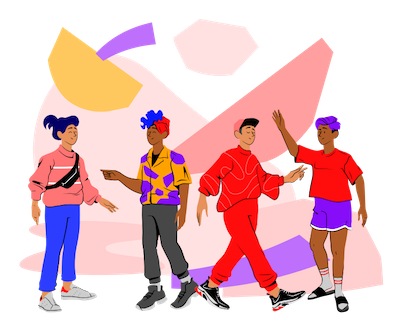|  | | | Hello there, language enthusiasts! Dive right into this fascinating issue as we demystify an intriguing proverb—'家家有本难念的经', and learn fun everyday words like '同伴', '灯光', '偷', '恐惧', and '十字'! |
| |
| |
|
|
同伴 tóngbàn This term refers to a person or animal with whom one spends a lot of time or with whom one travels. It is frequently used in expressing the company relationship. Here's how to use it: 你要和你的同伴一起去看电影吗? Nǐ yào hé nǐ de tóngbàn yīqǐ qù kàn diànyǐng ma? 同伴们已经订好了电影票。 Tóngbàn men yǐjīng dìng hǎole diànyǐng piào. 我的同伴因为看这个电影而哭了。 Wǒ de tóngbàn yīnwèi kàn zhège diànyǐng ér kūle.
| |
|
灯光 dēng guāng In Chinese, '灯光' translates to 'lights'. This term can be used in many different contexts, such as stage lights, street lights, or car lights. Like in English, it can be both singular and plural depending on the context. Here's how to use it: 灯光越来越暗了。 dēng guāng yuè lái yuè àn le. 他的眼睛被强烈的灯光刺痛。 tā de yǎn jīng bèi qiáng liè de dēng guāng cì tòng. 灯光投射在墙上的影子。 dēng guāng tóu shè zài qiáng shàng de yǐng zi.
| |
|
偷 tōu The Chinese word '偷' is used in a similar way as the English word 'steal'. It typically refers to the act of taking someone else's property without permission and with the intention of keeping it. For example, '他偷了我的钱包' means 'He stole my wallet'. Here's how to use it: 我看到他在偷东西。 Wǒ kàn dào tā zài tōu dōngxī. 他们偷了我所有的金子。 Tāmen tōu le wǒ suǒyǒu de jīnzi. 他为什么要偷手机? Tā wèishéme yào tōu shǒujī?
| |
|
恐惧 kǒngjù The Chinese word for 'fear' is '恐惧'. It is often used in both formal and informal settings. Like in English, it can be used to express a feeling of being scared or a deep, often disturbing, uneasiness or dread. It may be used to describe a fear of something specific (such as heights or spiders) or more abstract fears (like fear of failure or the unknown). Here's how to use it: 这只老鼠真的让我恐惧。 zhè zhǐ lǎoshǔ zhēn de ràng wǒ kǒngjù. 恐惧并不能解决问题。 kǒngjù bìng néng jiějué wèntí. 我一直战胜恐惧。 wǒ yīzhí zhànshèng kǒngjù.
| |
|
十字 shí zì The Chinese term for 'cross' is '十字', which is used in the same contexts as in English. It could refer to the religious symbol, an intersection, or the action of passing from one side to another. Similar to English, it can also be used metaphorically in different expressions. Here's how to use it: | |
|
🤔🤔🤔 Every family has its own difficult scripture to read jiā jia yǒu běn nán niàn de jīng | |
|
| You received this email because you signed up at LangBites.co. Click here to unsubscribe. |
| |
|
|
|

